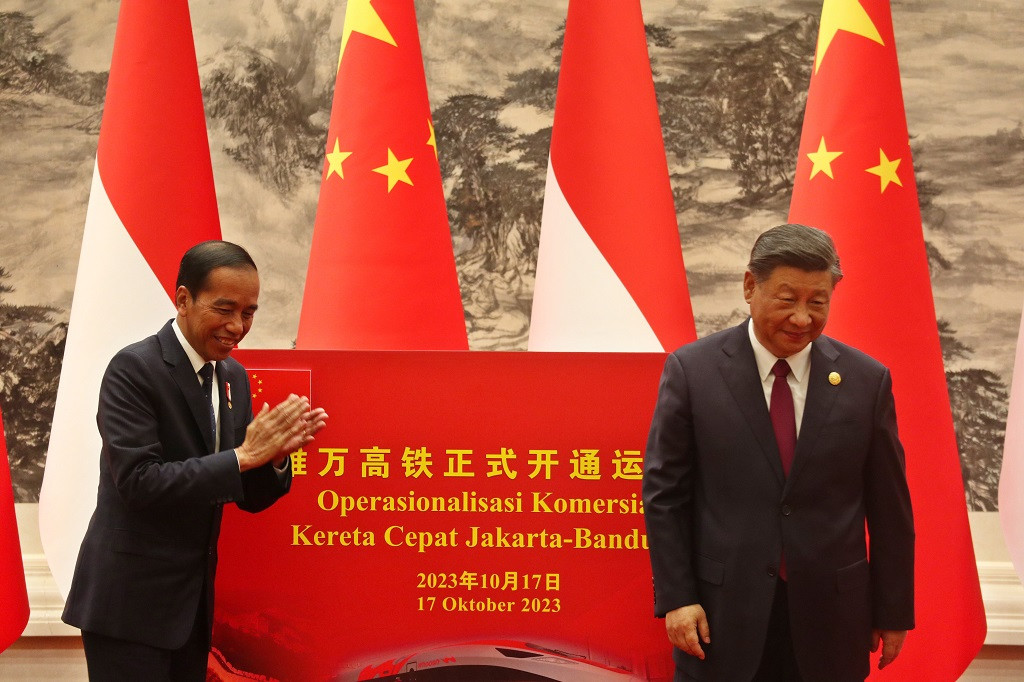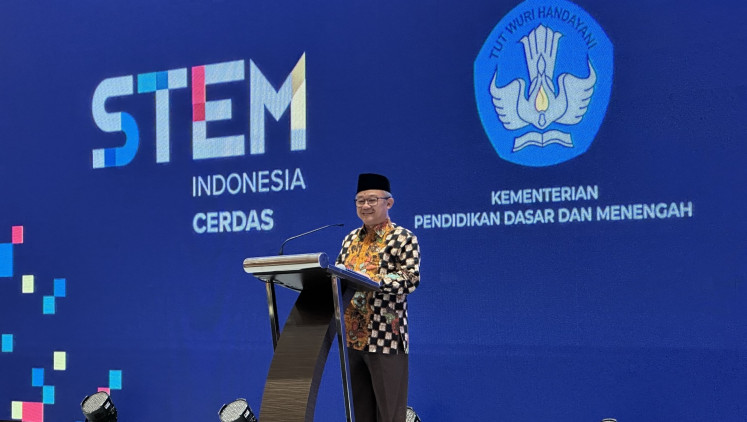Popular Reads
Top Results
Can't find what you're looking for?
View all search resultsPopular Reads
Top Results
Can't find what you're looking for?
View all search resultsValue in neutrality
Thomas Lembong’s characterization of Indonesia’s foreign policy as “transactional” makes it sound as if decisions were made ad hoc based on pragmatic considerations, but neutrality or non-alignment is, in fact, quite a principled position to take.
Change text size
Gift Premium Articles
to Anyone

The administration of President Joko “Jokowi” Widodo, like others before it, has stood by Indonesia’s well-established foreign policy of neutrality amid major-power rivalries, and other countries have generally accepted that stance.
Many would contend that the “free and active” foreign policy doctrine has served Indonesia well and allowed the archipelago to develop its economy peacefully, without serious military threats.
A strong case must be made, therefore, by anyone proposing to abandon or alter what has been a tenet of Indonesia’s foreign policy since the Cold War.
The campaign team of presidential candidate Anies Baswedan took issue with that policy on Tuesday, when its economic point man suggested a shift away from the country’s neutral stance in global affairs.
Thomas Lembong said Anies’ idea was for Jakarta to pursue what he termed a “values-based policy” on the international stage, one that put a heavy emphasis on principles rather than economic benefits.
It might surprise some to hear such a proposal from a former trade minister and former head of the Investment Coordinating Board, given that economic concerns must have been Thomas’ main concerns when he served in those positions.

But his statements, of course, must now be viewed in light of his role as a key pillar of the Anies campaign, which almost obliges him to find fault with policies of the incumbent administration.
The preference for non-alignment, however, long predates the incumbent administration. Therefore, the Anies team in this case is not attacking the government led by Jokowi, as much as it is questioning the foreign policy doctrine that has guided the republic’s external affairs for decades.
Eddy Soeparno, meanwhile, a spokesman representing presidential candidate Prabowo Subianto at the same Bloomberg-hosted event, said Indonesia should continue its policy of favoring neither China nor the Unites States as the two superpowers vie for global influence.
Similarly, the spokesperson for Ganjar Pranowo’s presidential campaign, Heru Dewanto, espoused a position of being friends with everyone.
That may sound “wishy-washy” to Thomas, but what is the alternative? Being friends with some and enemies with others?
Thomas’ characterization of Indonesia’s foreign policy as “transactional” makes it sound as if decisions were made ad hoc based on pragmatic considerations, but neutrality or non-alignment is, in fact, quite a principled position to take.
It is arguably far more principled than a values-based policy, because values change over time and differ from country to country. Whose values should we base our foreign policy on? What if governments invoke different values depending on which country they are dealing with?
Double standards in international relations have become all too obvious lately, as geopolitical interests shine through the veneer of proclaimed values.
Staying out of the US-China rivalry and instead looking out for our own interests as we engage with both sides is not just pragmatic economic diplomacy. It is virtuous, because such a policy favors international cooperation over conflict and sets an example for other countries to follow.
The stance has earned us respect around the world.
In economic ties, it allows the government to pursue trade and investment with the US, China or any other country. When high-ranking officials pitched Indonesia as an investment destination during visits to carmakers Tesla and BYD in recent years, it reflected both the “active” and the “free” component of our foreign policy.
In downstream industrial development, we have smelters being built by US-based and by China-based companies, and firms from both countries have even engaged in joint projects.
We staged a naval exercise last summer that involved, simultaneously, naval vessels from China, India, Japan, Russia, the US and other countries, including both Koreas. If that does not reflect international respect, what does?
Behind closed doors, any government in Jakarta will face pressure to pick sides. There may be diplomatic blackmail, such as threats to withhold investment or market access unless Indonesia pledges allegiance to one side over the other.
Resisting such pressure requires that our elected officials fully appreciate the value that lies in neutrality.










